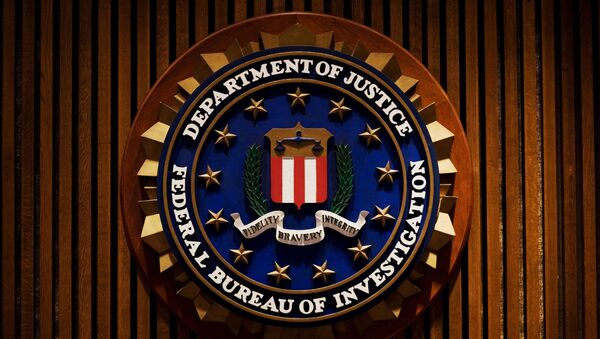Lawmakers in the US House of Representatives are expected to vote Thursday on a bill that would codify into law some surveillance practices that have previously been criticized as unconstitutional.
The bill would re-authorize Section 702 of the Foreign Intelligence Surveillance Act (FISA), which serves as the basis of some of the US government’s largest surveillance programs.
Section 702 was authorized in 2008 and was set to expire on December 31, 2017, but was prolonged until January 19 as Congress was unable to reach an agreement on the terms of its re-authorization.
This section allows intelligence agencies to surveil the transnational communications of Americans without a warrant, as long as the "target" is not a US citizen. The problem is that this, due to loopholes, often results in the warrantless surveillance of US citizens as well.
READ MORE: Pentagon-Collected Surveillance Data on Internet Users Becomes Public
The proposed bill seeks to close the so-called backdoor search loophole, where the National Security Agency (NSA) shares certain kinds of information with the Federal Bureau of Investigation (FBI), which can then be used by the FBI to search Americans’ communications without a warrant.
However, while the bill seeks to close the loophole, it would make significant exceptions. For example, FBI does not have to apply for a warrant if it is a matter of national security or when it determines that there is a "threat to life or serious bodily harm."
The bill also addresses the so-called "about" collection, a practice where the NSA may search through communications, including those of American citizens, in order to collect communications that are "about" a targeted non-American individual. While the bill will legally forbid the practice, it will establish certain provisions whereby the practice can be continued in individual, specific cases.
The bill has provoked concerns from privacy advocates as well as some privacy-minded Republican and Democrat lawmakers.
"The bill’s language risks being read as a codification and expansion of certain illegal government practices such as collecting communications that are not to or from a surveillance target, including domestic communications," the American Civil Liberties Union (ACLU) said in a statement Friday, calling on Congress to abandon efforts to pass the legislation.
FBI Surveillance Powers
Critics warn that the approval of the bill would further increase the FBI’s intelligence and surveillance powers. They were significantly expanded by the 2001 Patriot Act, which was aimed at strengthening national security after the 9/11 attacks.
In particular, under the Patriot Act, the FBI can covertly conduct physical searches or wiretaps of American citizens in order to obtain evidence of crime without having to prove probable cause, which critics say contradicts the requirements of the Fourth Amendment.
In 2008, an amendment was made to FISA, which authorizes security and intelligence agencies, including the FBI, to monitor phone, email and other communications of American citizens "for up to a week" without a warrant, as long as one of the parties is outside the US.
The amendment has been used as the legal basis for surveillance programs revealed by former NSA contractor Edward Snowden in 2013, including PRISM, which involves the collection of emails, chat messages and videos from tech companies for intelligence purposes. The information is gathered by the NSA, but can be shared with other agencies, including the FBI.





